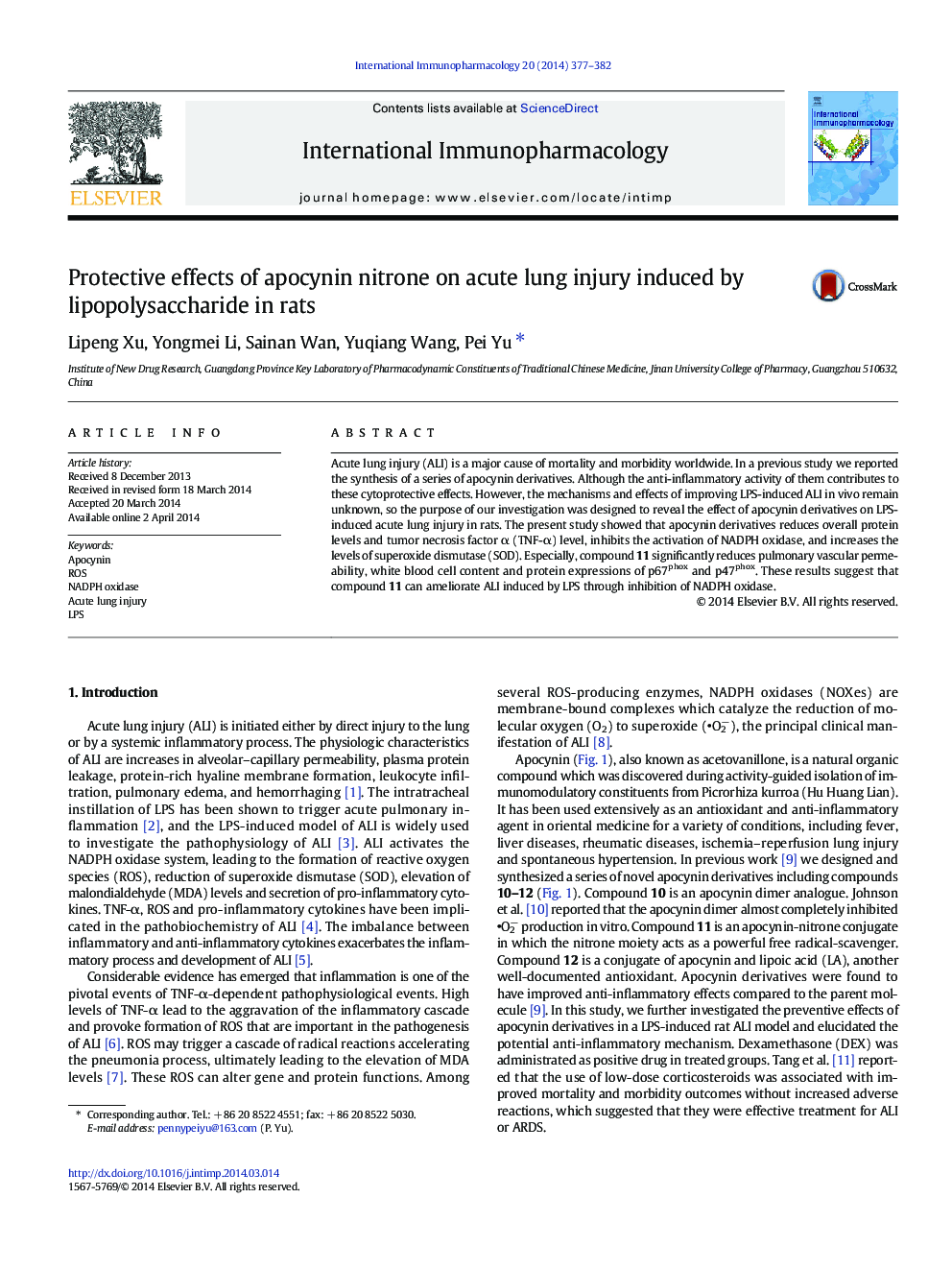| Article ID | Journal | Published Year | Pages | File Type |
|---|---|---|---|---|
| 2540793 | International Immunopharmacology | 2014 | 6 Pages |
•Compound 11 significantly inhibited the penetration of leukocytes into the alveolar space.•Compound 11 was more potent in reducing the level of MDA compared to apocynin.•Compound 11 could reduce the level of TNF-α and increase the production of SOD.•Compound 11 significantly inhibited the expression levels of p67phox and p47phox.
Acute lung injury (ALI) is a major cause of mortality and morbidity worldwide. In a previous study we reported the synthesis of a series of apocynin derivatives. Although the anti-inflammatory activity of them contributes to these cytoprotective effects. However, the mechanisms and effects of improving LPS-induced ALI in vivo remain unknown, so the purpose of our investigation was designed to reveal the effect of apocynin derivatives on LPS-induced acute lung injury in rats. The present study showed that apocynin derivatives reduces overall protein levels and tumor necrosis factor α (TNF-α) level, inhibits the activation of NADPH oxidase, and increases the levels of superoxide dismutase (SOD). Especially, compound 11 significantly reduces pulmonary vascular permeability, white blood cell content and protein expressions of p67phox and p47phox. These results suggest that compound 11 can ameliorate ALI induced by LPS through inhibition of NADPH oxidase.
Graphical abstractFigure optionsDownload full-size imageDownload as PowerPoint slide
